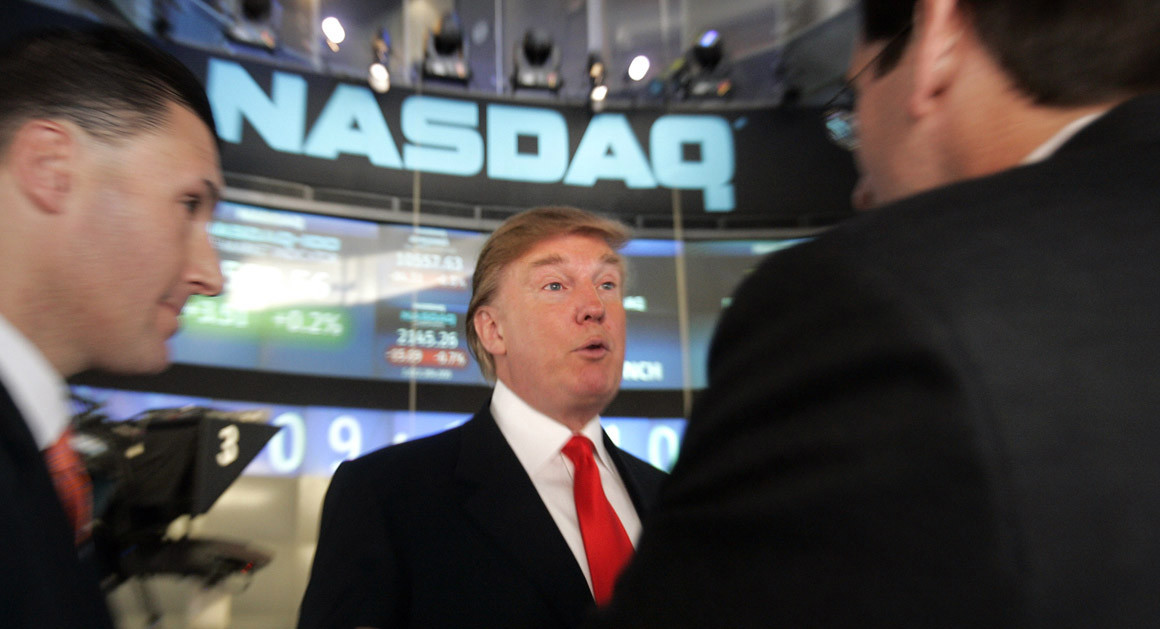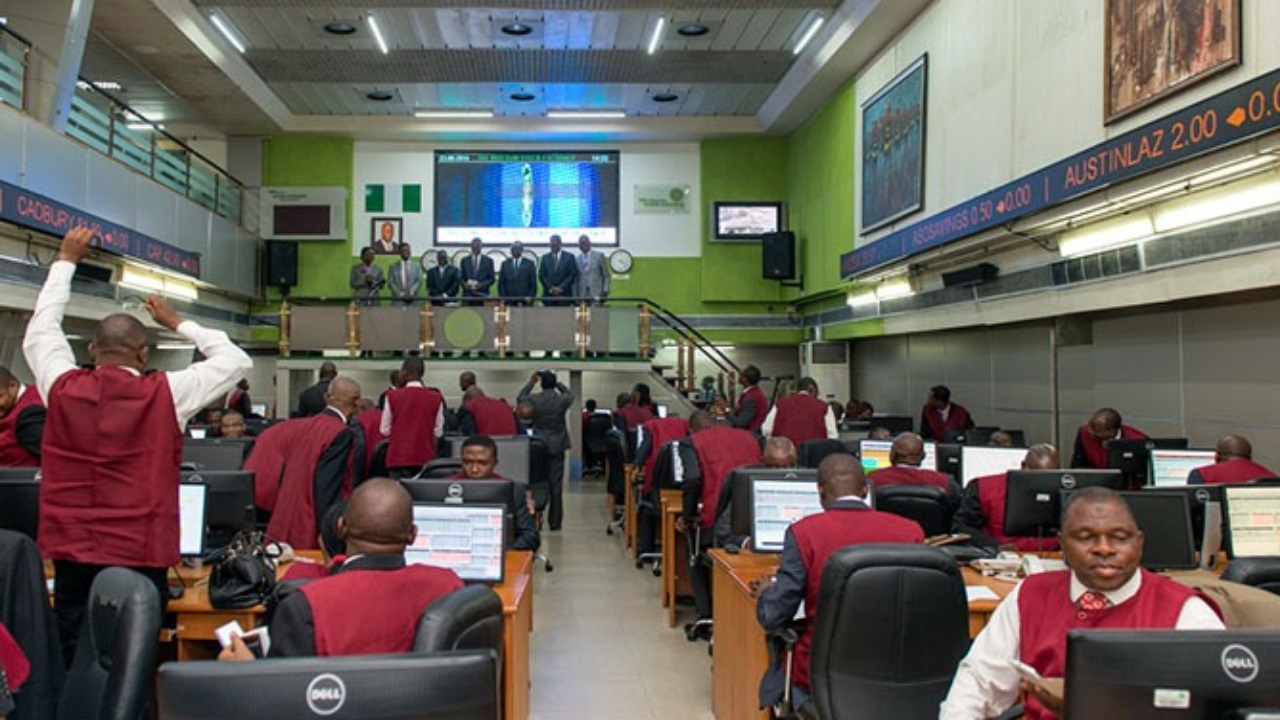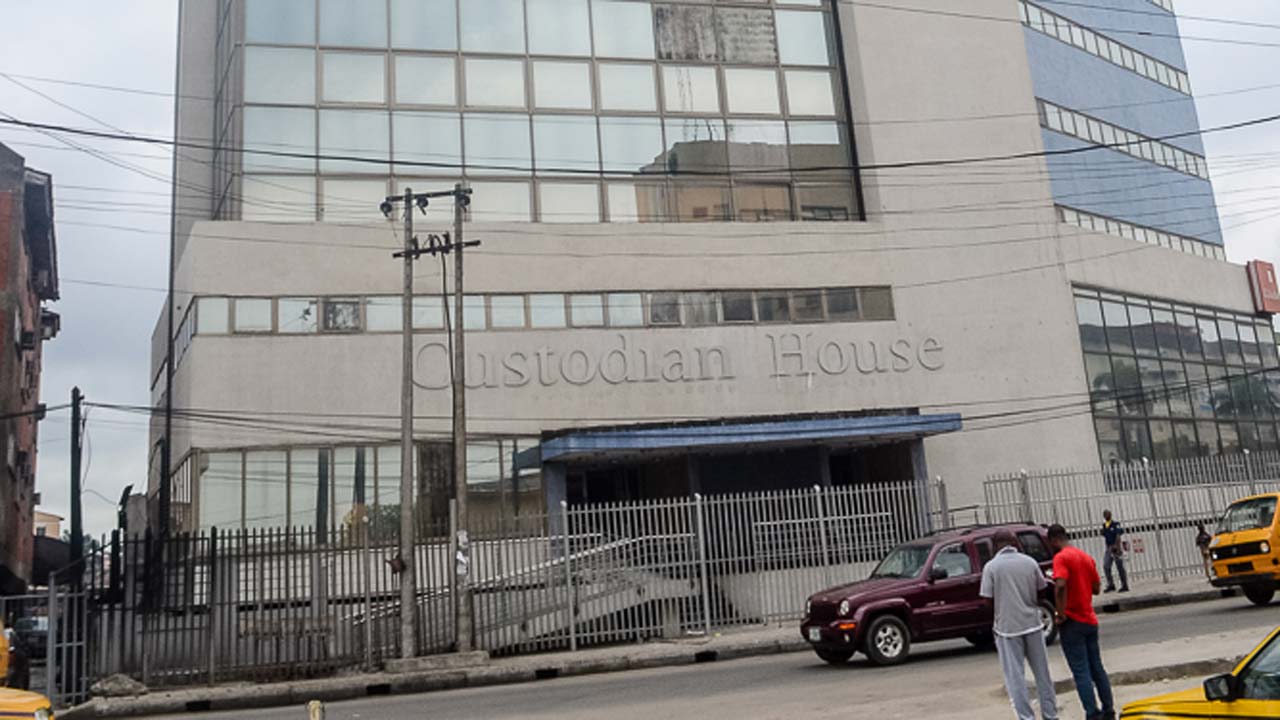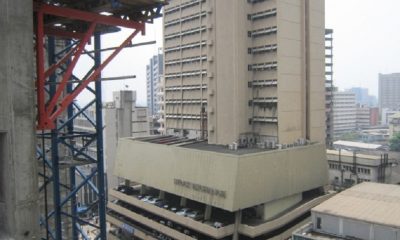Economy
Disappointing Earnings News May Weigh on Wall Street

By Investors Hub
The major U.S. index futures are pointing to a lower open on Friday, with stocks likely to move back to the downside following the rebound seen over the course of the previous session.
Semiconductor stocks may lead the markets lower amid a negative reaction to earnings news from graphics chip maker Nvidia (NVDA) and semiconductor equipment maker Applied Materials (AMAT).
Lingering concerns about the global economic outlook as well as concerns along with renewed anxiety Brexit may also weigh on the markets.
After extending a recent downward trend early in the session, stocks showed a substantial turnaround over the course of the trading session on Thursday. The major averages bounced well off their lows of the session and firmly into positive territory.
The major averages pulled back off their best levels but held on to strong gains into the close. The Dow advanced 208.77 points or 0.8 percent to 25,289.27, the Nasdaq soared 122.64 points or 1.7 percent to 7,259.03 and the S&P 500 jumped 28.62 points or 1.1 percent to 2,730.20.
The rebound on Wall Street came amid optimism about trade after a report from the Financial Times said the U.S. and China have intensified efforts to reach a trade agreement at the G20 summit later this month.
The FT said negotiators stepped up efforts following a telephone call between U.S. President Donald Trump and Chinese President Xi Jinping earlier this month.
In a post on Twitter following the call, Trump said he had a “very good” conversation with Xi with a “heavy emphasis on trade.”
The FT said China subsequently responded to U.S. requests to address a range of sticking points, with senior U.S. and Chinese officials discussing the possibility of concessions.
One person familiar with the situation told the FT that U.S. Trade Representative Robert Lighthizer had told some industry executives the next round of tariffs on Chinese imports was already on hold.
The early weakness in the markets came amid lingering concerns about the global economic outlook as well as news of the resignation of U.K. Brexit Secretary Dominic Raab.
Traders were also digesting a slew of U.S. economic data, including reports on retail sales and weekly jobless claims.
Retail sales in the U.S. increased by more than anticipated in the month of October, the Commerce Department revealed in a report.
The Commerce Department said retail sales advanced by 0.8 percent in October following a revised 0.1 percent dip in September.
Economists had expected retail sales to climb by 0.5 percent compared to the 0.1 percent uptick originally reported for the previous month.
Excluding a jump in auto sales, retail sales still rose by 0.7 percent in October after edging down by 0.1 percent in September. Ex-auto sales had been expected to increase by 0.5 percent.
Meanwhile, closely watched core retail sales, which exclude automobiles, gasoline, building materials and food services, rose by 0.3 percent in October, matching the downwardly revise increase in September.
“The plunge in oil prices in recent weeks will boost households’ real disposable incomes by close to $40 billion, with surging natural gas prices likely to offset only a small fraction of that improvement in purchasing power,” said Michael Pearce, Senior U.S. Economist at Capital Economics.
“With consumer confidence still high, much of this extra cash is likely to filter through to spending on other goods and services,” he added. “But we doubt that will be enough to replace the boost from the earlier fiscal stimulus or offset all of the headwind from tighter monetary policy.”
A separate report from the Labor Department showed a slight increase in first-time claims for U.S. unemployment benefits in the week ended November 10th.
The report said initial jobless claims inched up to 216,000, an increase of 2,000 from the previous week’s unrevised level of 214,000. Economists had expected jobless claims to edge down to 212,000.
The Labor Department also released a report showing import and export prices both rose by more than expected in the month of October.
The Labor Department said import prices climbed by 0.5 percent in October after rising by a downwardly revised 0.2 in September.
Economists had expected import prices to inch up by 0.1 percent compared to the 0.5 percent increase originally reported for the previous month.
The report also said export prices rose by 0.4 percent in October after coming in unchanged in September. Export prices had also been expected to tick up by 0.1 percent.
Reports released by the Federal Reserve Banks of New York and Philadelphia showed mixed readings on the pace of growth in regional manufacturing activity in the month of November.
Semiconductor stocks moved sharply higher over the course of the session, driving the Philadelphia Semiconductor Index up by 3.3 percent.
Significant strength also emerged among biotechnology stocks, as reflected by the 2.9 percent jump by the NYSE Arca Biotechnology Index. The index rebounded after ending the previous session at a seven-month closing low.
Gold stocks extended yesterday’s rally amid a continued increase by the price of the precious metal, with the NYSE Arca Gold Bugs Index surging up by 2.1 percent.
Software, steel, networking and banking stocks also moved notably higher on the day, while considerable weakness remained visible among interest rate-sensitive utilities and housing stocks.
Economy
NCSP, NACCIMA Move to Unlock SME-led Industrial Growth

By Adedapo Adesanya
The Nigeria–China Strategic Partnership (NCSP) has reaffirmed its commitment to consolidate engagements with the Organised Private Sector while strengthening strategic collaboration to accelerate Nigeria’s industrial expansion, following a high-level meeting with the leadership of the Nigerian Association of Chambers of Commerce, Industry, Mines and Agriculture (NACCIMA).
The dialogue focused on aligning institutional efforts to deepen Nigeria–China economic cooperation and position Small and Medium Enterprises (SMEs) as primary beneficiaries of trade, manufacturing, and investment initiatives.
The Director-General of NCSP, Mr Joseph Tegbe, stated that the Partnership was established as a structured coordination platform to drive Nigeria’s strategic economic engagement with China in a disciplined and result-oriented manner.
He outlined its core mandates, including oversight of FOCAC-related initiatives, advancement of priority economic initiatives, and the facilitation of catalytic industrial projects across priority sectors.
Mr Tegbe emphasised that the next phase of engagement will prioritize harmonization of ongoing initiatives, stronger inter-agency coordination, and clearer execution frameworks to ensure Nigerian businesses, particularly SMEs, benefit more directly and sustainably from bilateral trade and investment initiatives.
According to a statement, NSCP said the meeting reviewed existing collaborations and investment pipelines, with both parties agreeing on the need to streamline coordination across federal and subnational levels to improve policy coherence, enhance implementation efficiency and eliminate fragmentation to take advantage of scale.
Mr Tegbe further highlighted the strategic importance of leveraging landmark trade instruments like China’s Zero-Tariff Agreement with African countries as a pathway to scale-up domestic manufacturing, deepen value addition, and strengthen Nigeria’s export competitiveness.
On his part, the President of NACCIMA and Chairman of the Organised Private Sector of Nigeria (OPSN), Mr Jani Ibrahim, commended NCSP’s structured engagement model and its deliberate focus on SMEs as drivers of inclusive industrial growth.
He reaffirmed the readiness of the organised private sector to collaborate closely with NCSP in mobilising enterprises, providing structured policy feedback, and ensuring measurable enterprise-level outcomes from Nigeria–China economic engagements.
Both sides identified practical pathways to integrate SMEs into manufacturing value chains linked to Chinese partnerships; expand agro-processing and value-added production; strengthen technical and vocational education collaborations to close industrial skills gaps; and promote the development of geo-cluster industrial parks capable of anchoring regional manufacturing ecosystems.
They agreed to establish a formal working interface to translate strategic alignment into measurable results, with defined focus areas including investment facilitation, SME capacity development, industrial cluster formation, and export-oriented growth.
The meeting underscores NCSP’s resolve to convert diplomatic goodwill into tangible economic gains, expand opportunities for Nigerian businesses and strengthen productive capacity, leveraging NACCIMA’s network, the statement added, saying this aligns with President Bola Tinubu’s Renewed Hope Agenda, which seeks to achieve sustained and inclusive growth anchored on industrial productivity and private-sector dynamism.
Economy
Nigeria’s Inflation Eases Further to 15.1% in January 2026

By Adedapo Adesanya
Nigeria’s headline inflation rate eased further to 15.10 per cent in January 2026, down from 15.15 per cent in December 2025, continuing the moderation that started in the latter months of 2025.
According to the National Bureau of Statistics (NBS), Consumer Price Index (CPI) declined to 127.4 points in January 2026, reflecting a 3.8-point decrease from the preceding month of December 2025, which came in as 131.2 points.
The data, which is the first of the year, beat analysts’ expectations, which had expected an 18 per cent growth. Instead, the January 2026 print showed a decrease of 0.05 per cent compared to the December 2025 Headline inflation rate.
On a year-on-year basis, the inflation rate was 12.51 per cent lower than the rate recorded in January 2025 (27.61 per cent). This shows that the Headline inflation rate (year-on-year basis) decreased in January 2026 compared to the same month in the preceding year.
On a month-on-month basis, the Headline inflation rate in January 2026 was -2.88 per cent, which was 3.42 per cent lower than the rate recorded in December 2025 (0.54 per cent). This means that in the review month, the rate of increase in the average price level was lower than the rate of increase in the average price level in December last year.
The percentage change in the average CPI for the twelve months ending January 2026 over the average for the previous twelve-month period was 21.97 per cent, showing a 4.37 per cent increase compared to 17.59 per cent recorded in January 2025.
Nigeria’s food inflation rate in January 2026 was 8.89 per cent on a year-on-year basis. This was 20.73 percentage points lower compared to the rate recorded in January 2025 (29.63 per cent).
On a month-on-month basis, the Food inflation rate in January 2026 was -6.02 per cent, down by 5.66 per cent compared to December 2025 (-0.36 per cent).
The decline can be attributed to the rate of decrease in the average prices of water yams, eggs, green peas, groundnut oil, soya beans, palm oil, maize (corn) grains, guinea corn, beans, beef meat, melon (egusi) unshelled, cassava tuber, and cow peas (white).
The NBS data showed that the average annual rate of food inflation for the twelve months ending January 2026 over the previous twelve-month average was 20.29 per cent, which was 18.18 percentage points lower compared with the average annual rate of change recorded in January 2025 (38.47 per cent).
Economy
Terrahaptix Secures Additional $22m from Investors, Valuation Hits $100m

By Adedapo Adesanya
Nigerian defence technology startup, Terra Industries, has extended its funding round to $34 million after securing an additional $22 million from investors, making it a $100 million company.
The new capital round was led by venture firm Lux Capital, with injections from the chief executive officer of Lagos-based unicorn Flutterwave, Mr Gbenga Agboola, as well as angel investors such as American actor Jared Leto and Jordan Nel.
The company said in a statement on Monday that the round was completed in under two weeks.
This comes weeks after it raised $11.75 million in January. That funding round was led by 8VC founded by the co-founder of Palantir Technologies Inc., Mr Joe Lonsdale. Other investors included Valor Equity Partners, Lux Capital, SV Angel, Leblon Capital GmbH, Silent Ventures LLC, Nova Global and angel investors, including Mr Meyer Malka — the managing partner of Ribbit Capital.
Some of the investors in the new round included 8VC, Nova Global, Silent Ventures, Belief Capital, Tofino Capital, and Resilience17 Capital, founded by Flutterwave CEO.
Terrahaptix, founded by Mr Nathan Nwachukwu and Mr Maxwell Maduka, will use the new funding to expand Terra’s manufacturing capacity as it expands into cross-border security and counter-terrorism.
The extension also comes amid growing international expansion. Earlier this month, Terra announced a partnership with Saudi industrial giant AIC Steel to launch a manufacturing hub in Saudi Arabia focused on producing infrastructure security systems.
In the coming weeks, the company also plans to unveil a mega factory, an indication of the company’s growth and importance, particularly as the need for security has risen in recent years, as groups such as Islamic State and al-Qaeda are gaining ground in Africa, converging along a swathe of territory that stretches from Mali to Nigeria.
According to Mr Nwachuku, the initial $11.75 million raise created significant momentum for the company, enabling it to close the additional $22 million in just under two weeks.
He added that beyond capital, the investors were selected for their experience building similar hard-tech and defence-focused companies.
-

 Feature/OPED6 years ago
Feature/OPED6 years agoDavos was Different this year
-
Travel/Tourism10 years ago
Lagos Seals Western Lodge Hotel In Ikorodu
-

 Showbiz3 years ago
Showbiz3 years agoEstranged Lover Releases Videos of Empress Njamah Bathing
-

 Banking8 years ago
Banking8 years agoSort Codes of GTBank Branches in Nigeria
-

 Economy3 years ago
Economy3 years agoSubsidy Removal: CNG at N130 Per Litre Cheaper Than Petrol—IPMAN
-

 Banking3 years ago
Banking3 years agoSort Codes of UBA Branches in Nigeria
-

 Banking3 years ago
Banking3 years agoFirst Bank Announces Planned Downtime
-

 Sports3 years ago
Sports3 years agoHighest Paid Nigerian Footballer – How Much Do Nigerian Footballers Earn




















